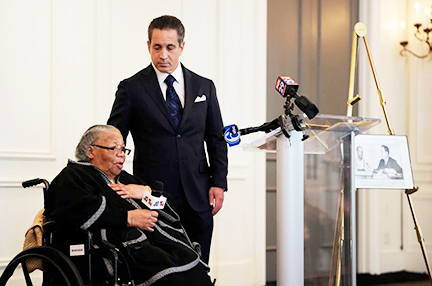By Hayden Mitman
PHILADELPHIA, PA — Alexander McClay Williams, who was executed at 16 after being convicted of murder in 1931, is the youngest person put to death in Pennsylvania.
The family of a teen who was executed by the state of Pennsylvania after being convicted of murder in 1931 have filed a lawsuit seeking damages nearly 100 years after his death.
On Monday, attorneys for the family of Alexander McClay Williams, who was executed by the state when he was just 16-years-old, announced that they were bringing forward a lawsuit over Williams’ execution after his conviction was vacated in 2022 and a new trial was ordered.
However, Williams was not retried posthumously, and his record was expunged back in 2017.
Williams’ family have long professed his innocence.
In fact, in 2022, in dismissing charges against the teen, Delaware County District Attorney Jack Stollsteimer argued that Williams should never have faced charges in the first place. “Sadly, we cannot undo the past. We cannot rewrite history to erase the egregious wrongs of our forebearers,” Stollsteimer said then. “However, when, as here, justice can be served by publicly acknowledging such a wrong, we must seize that opportunity.”
Now, citing Williams’ wrongful conviction and death, his family has brought a lawsuit against the state and Delaware County. The suit seeks unspecified punitive damages.
Willams — who was Black — was convicted after 34-year-old Vida Robare — who was white and was a house matron at the Glen Mills School for Boys — was found murdered inside her cottage on the school grounds on October 3, 1930. Her body was discovered by her ex-husband Fred Robare, who was also an employee at the school.
Williams was arrested and charged with stabbing Robare 47 times.
However, there were no witnesses to the crime and Williams was never seen at the scene. Instead, prosecutors relied on confessions that were coerced out of the 16-year-old Williams.
Her husband was the first to find her body on the day she was murdered.
Williams was executed June. 8, 1931.
Attorneys for Williams’ family said in a statement that Sam Lemon, the great-grandson of Williams’ criminal trial attorney, William H. Ridley, uncovered information showing that evidence against Williams was fabricated.
In 2022, after hearing the new evidence presented, the Court of Common Pleas for Delaware County vacated the conviction and ordered a new trial.
Then, Stollsteimer dismissed the case, the attorneys noted in a statement.



